1) Jackson Pollack does the weather report
NYT: Just How Wild Is This Week’s Weather? One Image Tells the Tale.
Every morning the Federal Emergency Management Agency puts out — basically — a crazy weather map, as in, this is the crazy, dangerous stuff going on around the country today, so don’t say we didn’t warn you!
In the past, this was a normal-scale daily capture:
You got some drought, bits of flooding, and a crazy storm or two. The rest is just chill.
Now check out this recent one:
This is your weather map on climate change: totally weirded out.
At some point you just want John Madden to start bleating, You sure don’t wanna go there, and forget about over here, so it’s pretty much a matter of running the ball up through here where the winds aren’t so crazy!
All this is to say that weather is coming to dominate our news, and that’s telling us something.
2) First you say you will And then you won't And then you say you do And then you don't You're undecided now. So what are you gonna do?
AP: Guyana turns to US to help boost its military as territorial dispute with Venezuela deepens
AP: Guyana rejects quest for US military base as territorial dispute with Venezuela deepens
Guyana wants US military backing, but it doesn’t want a US military base, or so it says for now.
Let me give you a tip, Guyana: The US tends to put in a base after the war, not before, and usually because the country in question really doesn’t want our military to go at that point.
Where we put in a base to deter a war, that has tended to work throughout history.
So it’s really a question of how much risk you can tolerate — as in, pay me now or pay me later.
3) Houthis are just plain excited to be in the game
NYT: Strikes Are ‘Extremely Unlikely’ to Deter Houthis, Experts Say
The Houthis are an Iranian-backed militia that overthrew the government in Yemen years back, triggering a major KSA-UAE joint military intervention that accomplished little but to devastate that poor land further. Now the Houthis control a good portion of the country but not all, so they’re like (and I know I am simplifying here) a Hamas in Gaza or Hezbollah in Lebanon — militia-based non-state actor seeking full-state control/recognition but not unhappy staying in their hybrid status.
Still, the gushiest dream of all such players is the sort of global recognition (and particularly the Arab/Muslim world recognition) that comes from “standing up” to the great devil that is the US military. It’s like an internet troll getting a direct response from some big-name celebrity: They see me! I matter!
In many ways, Hamas’ Oct 7 military incursion into Israel sought to re-establish the group along such lines: We are relevant! We cannot be negotiated away! And so on.
The worst thing for these groups is the world simply moving on and forgetting about them.
So, yeah, the Houthis are hooting it up right now, because their attacks on Red Sea shipping is triggering direct US military strikes in Yemen.
Do they accomplish anything? Not really.
Does it matter that they don’t? Not really.
The Houthis are going to remain the Houthis — basically a backdrop character like the Sand People (Tusken Raiders) in Star Wars. Yes, they can shoot at things that go by, but that’s about it.
And yes, we can smack them upside the head now and then, and they will welcome that recognition.
As for degrading their capabilities? That’s called “mowing the grass,” per the Israelis. Shit work but somebody’s gotta do it every so often.
Again, don’t buy the hype of an “escalating” war or a regionalized conflict. This is just the full cast of characters being revealed.
4) Mexico back on top!
Nikkei Asia: China set to lose crown as top U.S. exporter after 17 years
Is this a sign of “friend-shoring”? Yeah, sure, let’s go with that.
But the larger truth is that China is moving away from the low-end manufacturing/cheap exports model of growth, so this is to be expected on some level.
We’re also seeing the rationalization of global value chains in light of China’s having completed its rise (losing its demographic dividend). As I put it in America’s New Map:
This tightening of supply chains represents less a de-globalization than an optimization of material trade befitting the rise of multiple competing consumer blocs across the global economy. A generation ago, Asia manufactured goods for the rest of the world. Now, it manufactures largely for itself. On its own, this positive development has triggered a remapping of global value chains—an absolute good generating regional trade efficiencies. In this next iteration of globalization, those superpowers accumulating the most demand power will rule global consumer tastes in a way America once did—and now faces losing.
Point being China’s maturation makes it a different player over time. Same thing happened in years past with Japan, which at one time had us freaking us and losing all confidence and now is such a trusted old pal that they can basically buy out our steel industry and nobody cares.
We will reach that comfort level with China at some point in the future, count on it.
5) How much is that war-y in the window? I do hope that war-y’s for sale!
National Review: The $10 Trillion Cost of a Taiwan War: Bloomberg
Bloomberg tallies up what it thinks a good dust-up over Taiwan would cost and they came up with the colossal figure of $10T.
Our Global War on Terror (GWOT), for example, is estimated to have cost about $8T over 20 years. This, however, would be more like $10T over 365 days, as this is a Year One-only estimate.
That should deter everyone potentially involved, but that may not be enough. There are plenty of players in the US eager to get it on with China, lest we lose our chance before its great decline, and, smelling that decline, why not get it on as soon as possible?
The real danger here is the matching up of that misguided eagerness with Xi’s sense of use-it-or-lose-it timing. China is peaking now; there’s only a slower path from here on out. So, if he can’t get Taiwan now, then why would he feel any more confident about getting it later?
From my perspective, and I worry saying this part out loud, lest I intrigue the hardliners oh so eager to get it on with China: the Xi regime will not survive an attack on Taiwan — there’s just no way it can because it will likely fail in a big splashy way (pun intended) that cannot be hidden from the public. So, in any fight, he’ll be the #1 casualty.
Will the CCP go down also? Much less likely. But we would see the frustrated Sixth Generation of leadership assume control, and that would likely be a good thing.
Still, time will do the same to Xi anyway, so let’s stick with being scared by that price tag.
6) Another victim of America’s War on Drugs
BBC: How Ecuador descended into gang violence
EuroNews: Ecuador deems drug gangs 'terrorist groups' after live TV attack
Nothing like having drug gangs take hostages live on TV — at the station.
This is Ecuador today — a country with $6k GDP per capita, which is seriously middle class and so should indicate a country doing pretty darn well.
Except it isn’t because of gang activity and violence.
Care to guess what kind of gangs?
Per the BBC:
Terrified journalists being forced to kneel in a TV studio by gunmen pointing high-powered weapons at their heads as the cameras rolled, police officers pleading for their lives after being kidnapped on duty.
This all started with the government trying to move a gang kingpin from one prison to another one more secure. He warned them there would be prison rioting and all sorts of bad stuff if they tried. Well, they got ready anyway, only to find this kingpin had escaped (or just disappeared inside the prison?) just before they could move him. All hell then broke loose, to include the dramatic storming of the TV station in an attempt to broadcast some demands, etc.
Now, we can look at this and see only the corruption of the state, or the prevalence of gangs, but, at the origin, it’s all about cocaine trafficking to the US.
Columbia and Peru are the two big producers, and Ecuador is the useful exit point, thus the role of gangs in Ecuador. America works hard with Colombia to cut down on the flow, so viola! Ecuador becomes the attractive alternative.
Squeeze the balloon in one place and watch it expand in another. This is the story of US counter-drug activities across LATAM.
So we spot yet another Latin American country unbelievably corrupted and stressed-out because of our insatiable drug demand.
Throw climate change on top of that mess and tell me: What kind of future does Ecuador have, going it alone? Where do we see this all going?
7) Russia: неслучайно!
Newsweek: Russia Maps Show 25% of Moscow Without Power Amid Winter Freeze 'Emergency'
Newsweek: Russians' Stark 'Armed Insurrection' Warning Amid Mobilization Backlash
Maybe a coincidence, maybe not …
Russian President Vladimir Putin has ordered the nationalization of an ammunition plant in Moscow after a mechanical failure caused tens of thousands of Muscovites to lose heat and water amid freezing temperatures beginning last week.
On January 4, a heating main burst at the Klimovsk Specialized Ammunition Plant in the town of Podolsk, which is around 30 miles south of central Moscow. Since then, tens of thousands of Russians are reported to have no heating in their homes in the Moscow region amid subzero temperatures.
Around the same time, we get another Newsweek story noting:
Russians have warned that the public may incite an armed insurrection over the Kremlin's treatment of mobilized soldiers in Ukraine.
The warning was issued by relatives of Russian men drafted under President Vladimir Putin's partial mobilization in late 2022, amid reports that soldiers are being prohibited from leaving the military despite completing their terms.
Can’t run the Homefront. Can’t run the war … what is Putin good for?
Per a Rand report cited in the second piece:
Currently, the only ways out—apart from death in combat—are reaching mandatory retirement age, medical discharge or imprisonment. Some soldiers have taken matters into their own hands by deserting.
Just rereading some WWI history, this all sounds very familiar.
Put it all together and you’re got a volatile mix reminiscent of revolutionary times in Russia.
8) The chip on America’s shoulder
NYT: The Next Front in the U.S.-China Battle Over Chips
Great NYT story of latest ideas/attempts by US to block China’s accessing of new chips and related technologies:
A U.S.-born chip technology called RISC-V has become critical to China’s ambitions. Washington is debating whether and how to limit the technology.
Here’s where it gets kind of nuts:
The debate over RISC-V is complicated because the technology was patterned after open-source software, the free programs like Linux that allow any developer to view and modify the original code used to make them. Such programs have prompted multiple competitors to innovate and reduce the market power of any single vendor.
But RISC-V is not code that can directly be used to make anything. It is a set of basic computing instructions that determine the calculations a chip can perform. Engineers can download these instructions and incorporate them in the much more complex task of creating design blueprints for parts of a semiconductor. Many companies sell RISC-V chip designs, and some universities and other institutions distribute them free.
I make you wade through those excerpts simply to get to this great quote:
“It is absolutely silly,” said Dave Ditzel, the chief technology officer of Esperanto Technologies, a chip start-up that uses RISC-V. “It’s like saying, ‘Well, the Chinese can read a book on nuclear weapons that’s written in English, so let’s solve the problem by banning the English alphabet.’”
This is why I don’t focus on tech as a variable that gives one side undue power over another. In today’s world, it’s impossible to embargo this stuff. Really, a waste of time.
9) This week’s depressing climate news
PNAS: Extreme drought impacts have been underestimated in grasslands and shrublands globally
Study proving that our assumptions about mega-droughts likely underestimated — by a ways — their cumulative impact.
Drought has well-documented societal and economic consequences. Climate change is expected to intensify drought to even more extreme levels, but because such droughts have been historically rare, their impact on ecosystem functioning is not well known. We experimentally imposed the most frequent type of intensified drought—one that is ~1 y in duration—at 100 grassland and shrubland sites distributed across six continents. We found that loss of aboveground plant growth, a key measure of ecosystem function, was 60% greater when short-term drought was extreme (≤1-in-100-y historical occurrence). This drought-induced loss in function greatly exceeds previously reported losses for grasslands and shrublands, suggesting that the global impacts of projected increases in drought severity have been substantially underestimated.
We are operating based on past experience but we’re heading into never-before-experienced.
And guess what? We typically underestimate how bad it’s going to be.
Remember that every time you read some story on climate change: the chances of over-exaggerating
… this big.
But the chances of underestimating ….
THIS BIG!!!!!!!!!!!!!!!!!!!!!!
10) Iran’s time to reach for the bomb
NYT: From Lebanon to the Red Sea, a Broader Conflict With Iran Looms
Good analysis from Times, pointing out that Tehran is ramping back up its nuclear weapons program big-time while the world is all focused on Israel-v-Gaza and all the sundry activities of Iran’s many proxies.
This makes perfect sense from Iran’s perspective.
It will also drive back up the strategic partnering going on among Israel, UAE, and the Saudis. If Iran gets the bomb, then Riyadh has to immediately cash-in its long-standing offer from Pakistan to provide the necessary wherewithal. I would imagine Israel would help out similarly under duress.
So, the major upshot of this whole thing in Gaza could well be the creation of a two-way strategic nuclear standoff between Israel and KSA on one side, and Iran on the other.
Strategists will freak out about this but history says otherwise.
History says this will force regional stability through arms control agreements.
Won’t happen immediately. Will be scary moments on the journey. But count on it.
Getting nukes is all about ruling our regime change forced upon you by outside powers. Iran, Israel, and Saudi Arabia all want the same get-out-of-jail card and nukes provide it (as Israel has learned over the decades now).
11) Forever and ever and ever
Reuters: Pentagon says not planning a US withdrawal from Iraq
Just like to remind everyone that America never did actually leave Iraq militarily. It just got the footprint down to the point where the casualties disappeared, as far as the country is concerned.
2,500 troops working the keep-ISIS-down mission.
12) This is what winning looks like
CNN: The ‘walking route’: How an underground industry is helping migrants flee China for the US
How many Americans are risking life and limb to sneak into China, the land of opportunity?
Not so many …
Other direction? From CNN:
They come with backpacks carrying a few spare changes of clothes and whatever money and phones they weren’t robbed of by criminals or cartels along the way, arriving at the United States-Mexico border exhausted from the stress of the journey north.
Like the hundreds of thousands of people around them who have also trekked weeks to reach the US, they’re driven by a desperation to escape and make a new life, despite the uncertainty of what’s on the other side.
But these migrants are fleeing the world’s second largest economy and an emerging superpower.
The norm used to be about 1,500 Chinese coming in that way over the last decade.
The number for 2023 was more than 30,000.
Our border crisis is indicative of our immense drawing power, and that attraction draws the Chinese, just like everybody else:
For now, people from China are on track to be the fastest growing group making those crossings, according to a CNN analysis of the latest law enforcement data on border encounters.
We need to figure out how to better wield that power of attraction, because it’s the best power we still have.




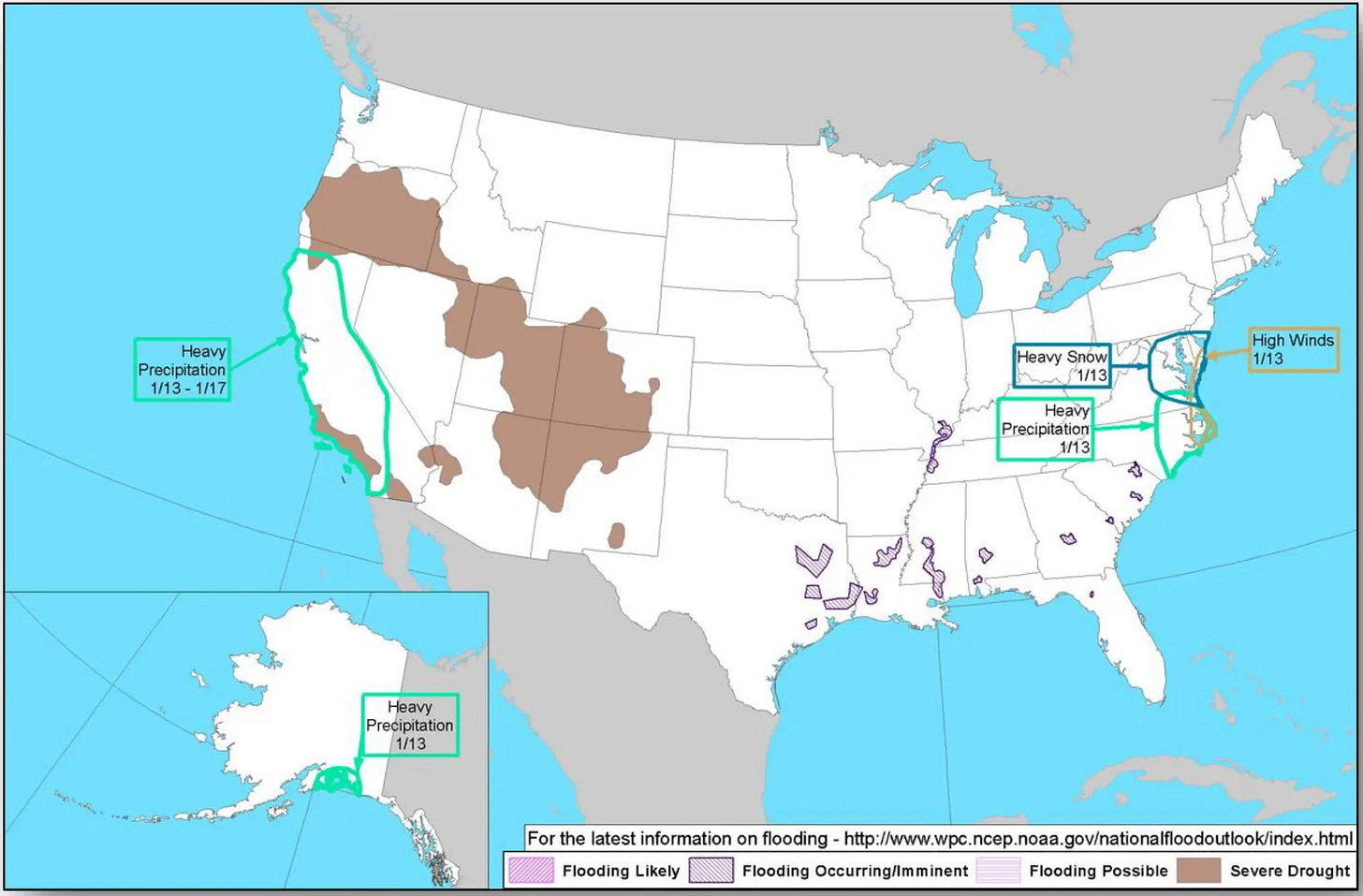
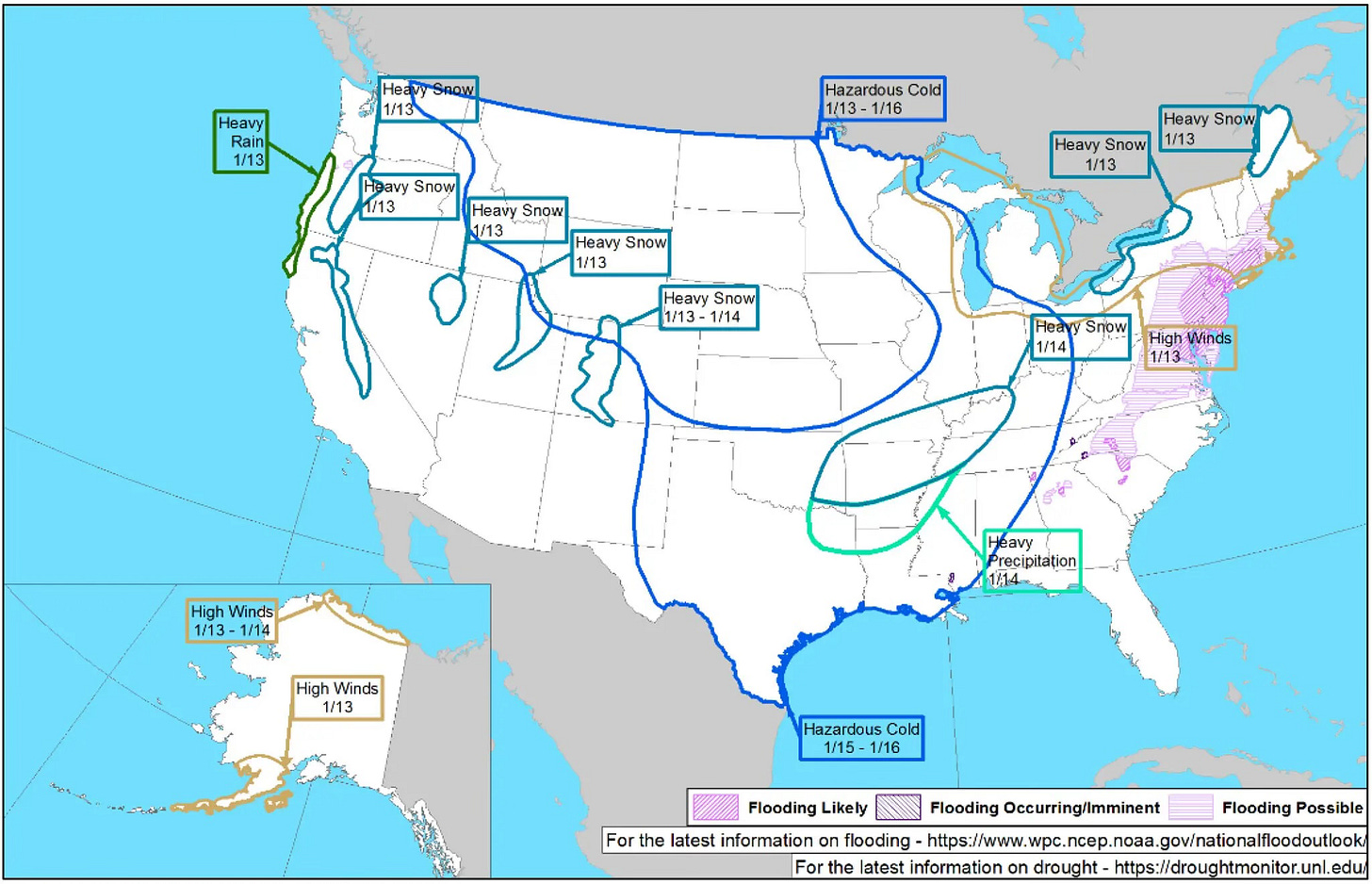


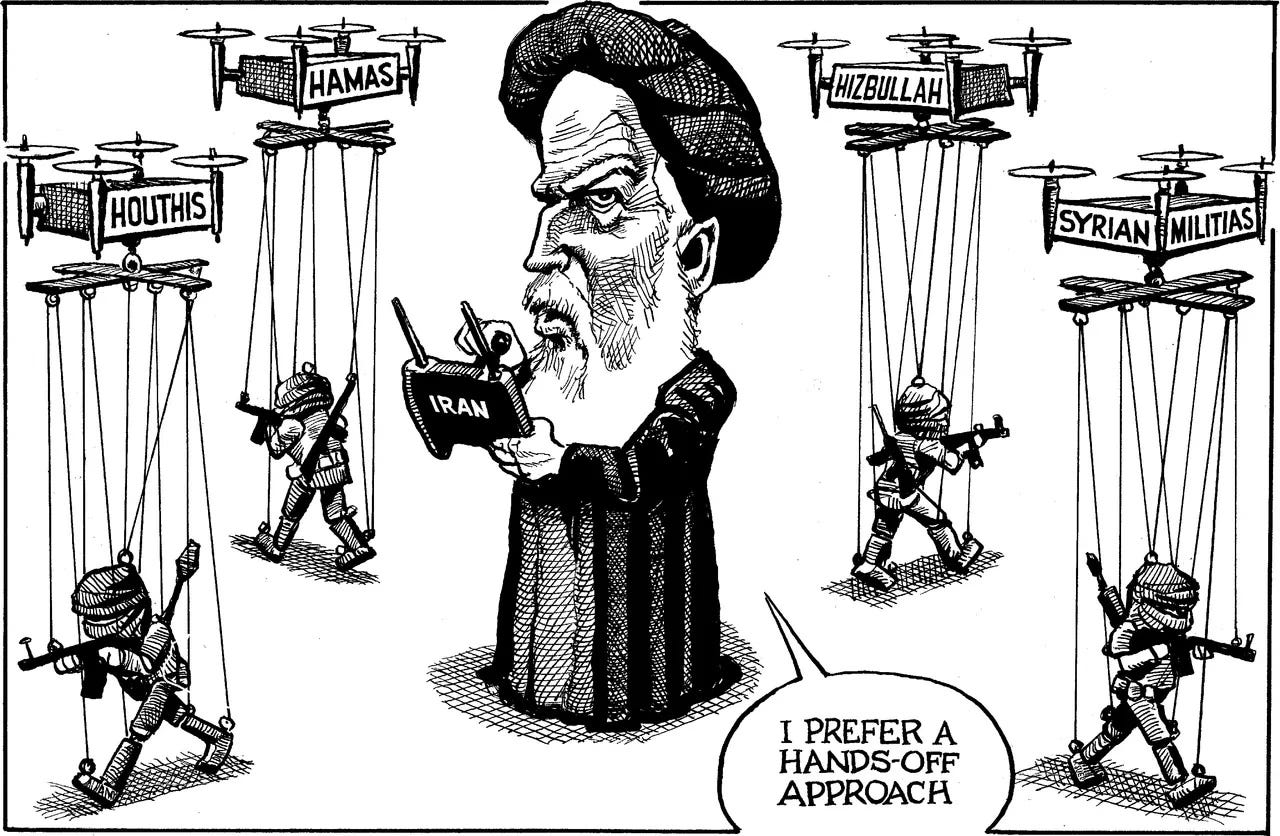
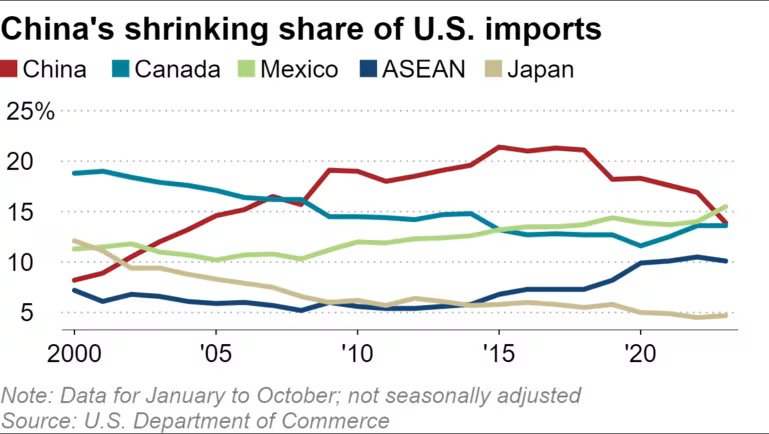

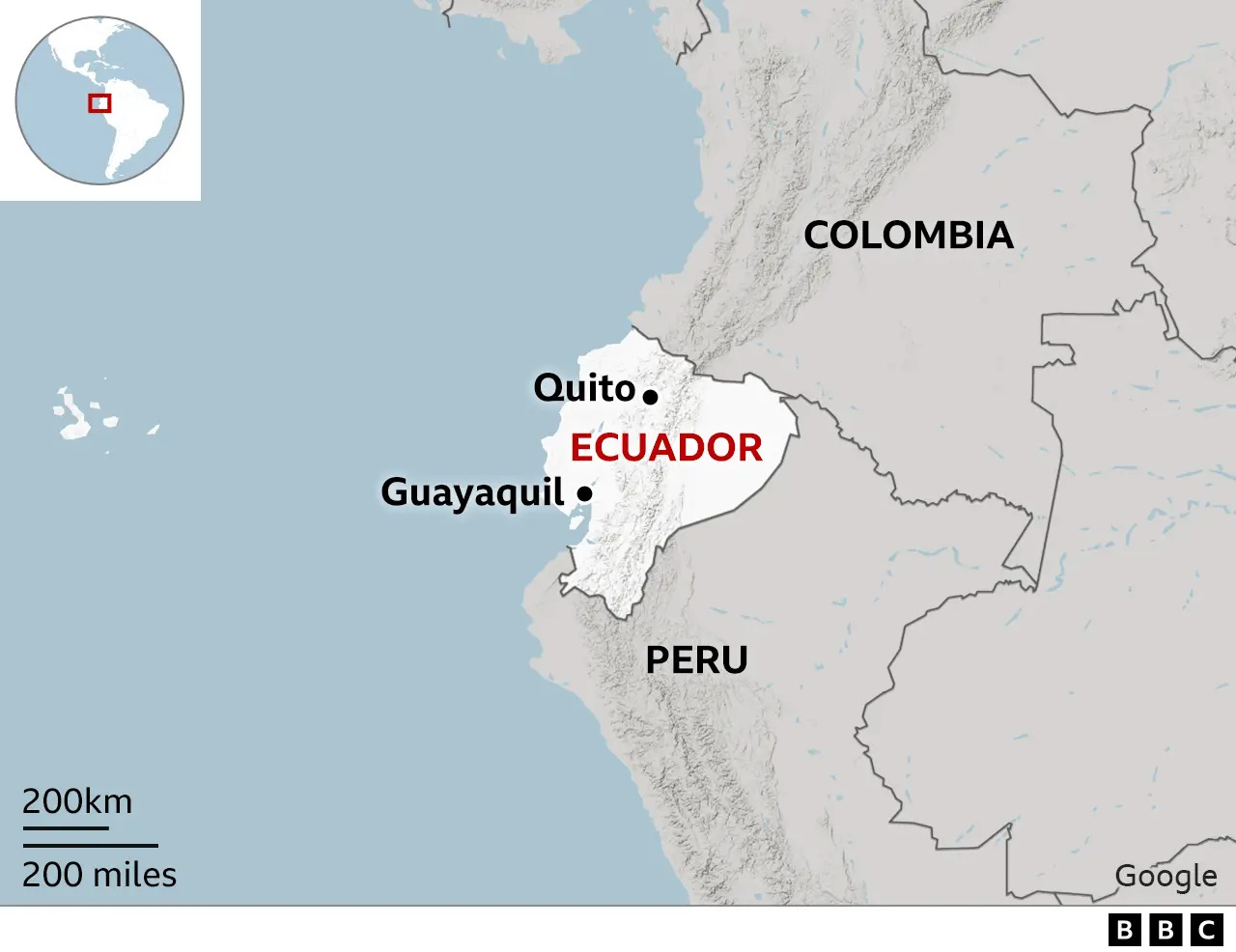
Appreciate your cold-blooded perspectives on these issues!